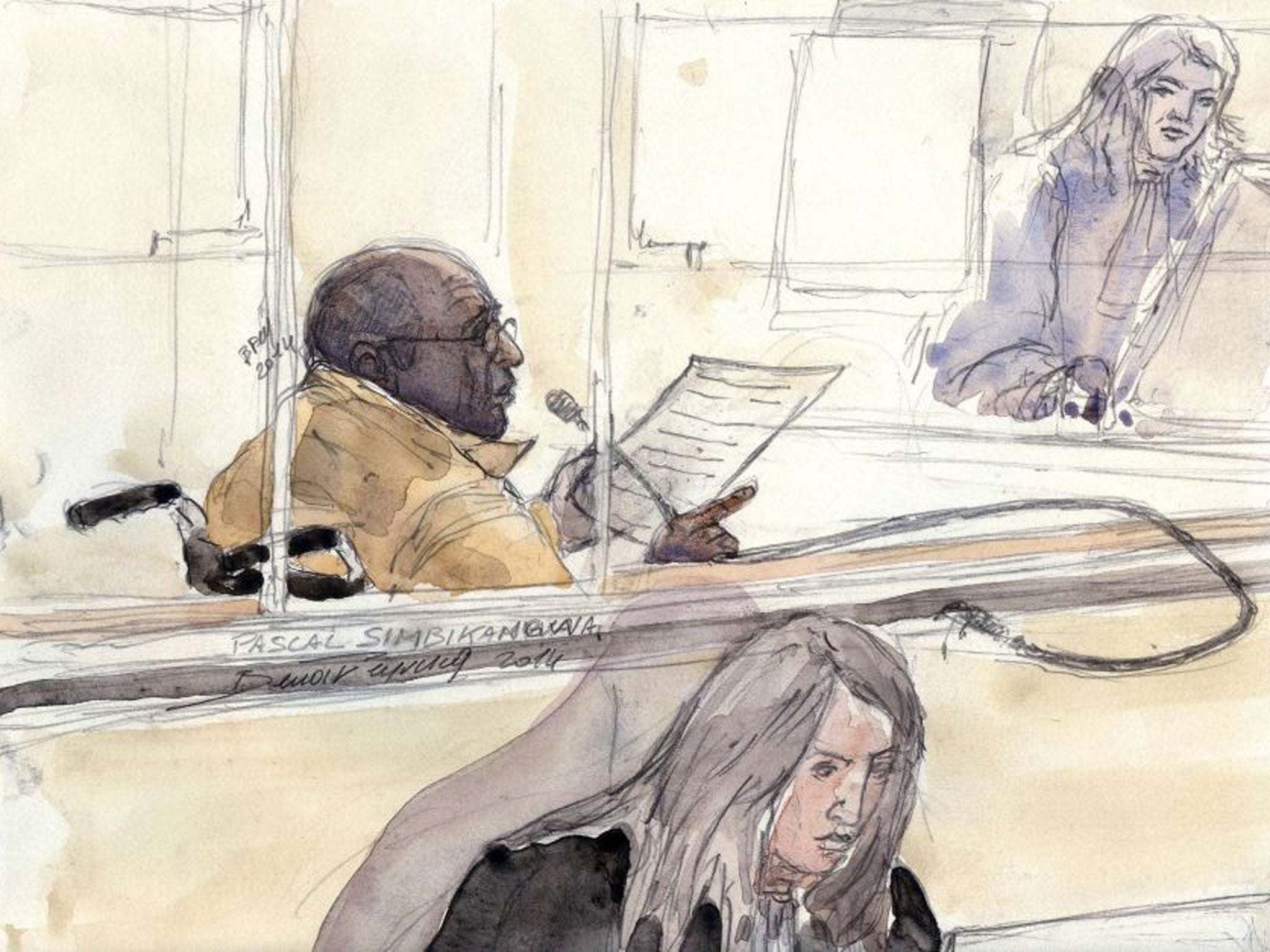Pascal Simbikangwa jailed in Paris: Rwandan genocide conviction could pave the way for more French trials
Pascal Simbikangwa was sentenced to 25 years in prison for organising and ordering the massacre of up to 80,000 Tutsis almost 20 years ago

Your support helps us to tell the story
From reproductive rights to climate change to Big Tech, The Independent is on the ground when the story is developing. Whether it's investigating the financials of Elon Musk's pro-Trump PAC or producing our latest documentary, 'The A Word', which shines a light on the American women fighting for reproductive rights, we know how important it is to parse out the facts from the messaging.
At such a critical moment in US history, we need reporters on the ground. Your donation allows us to keep sending journalists to speak to both sides of the story.
The Independent is trusted by Americans across the entire political spectrum. And unlike many other quality news outlets, we choose not to lock Americans out of our reporting and analysis with paywalls. We believe quality journalism should be available to everyone, paid for by those who can afford it.
Your support makes all the difference.The conviction for genocide of a former Rwandan intelligence officer in a Paris court could be just the beginning of a flood of similar trials in France.
Pascal Simbikangwa, 54, was sentenced to 25 years in prison on Friday night after being found guilty of organising and ordering the massacre of up to 800,000 Tutsis by the majority Hutu community in Rwanda almost 20 years ago.
Simbikangwa’s conviction for genocide and “complicity in crimes against humanity” is a landmark judgement in a country which was long accused of sheltering senior Hutu figures suspected of involvement in the massacres in April and May 1994. Twenty other people are under investigation in France, including the widow of the former Rwanda president and a former French gendarmerie officer who was close to the late President François Mitterrand.
The five week trial of Simbikangwa threw little new light on France’s alleged complicity – or at least culpable negligence – in supporting the Hutu-led regime in Kigawa before and after the start of the massacres. It marked a new stage, however, in the long journey of successive French governments and the French judicial system towards acceptance of the internationally-recognised account of one the most appalling events of the 20th century.
Simbikangwa, a former captain of the Rwandan presidential guard and a senior security officer, denied all involvement in the mass killings . He claimed that he had never seen a single dead body in Rwanda in the spring of 1994. He said that his own mother was a Tutsi and claimed to have “saved Tutsis” from massacres which, at other times, he suggested had never happened.
The prosecution, in its summing up, said that he was not only guilty of genocide but also a “negationist”. They said that he was member of a government inner-circle called Azaku (little house) which planned the genocide and part-owner of a radio station – Radio Milles Collines – which urged Hutus to destroy “cockroaches” (Tutsis) after the aircraft of Rwanda’s Huti president, Juvenal Habyarimana, was destroyed by a missile on 6 April, 1994.
The prosecution had called for his imprisonment for life but the Paris assize court imposed a somewhat more lenient sentence of 25 years in jail.
A defence lawyer Alexandra Bourgeot, said that the decsions to impose a genocide verdict and a relatively lenient sentence were “ incoherent”. She said that the court had not fully understood the case. Emmanuel Daoud, a lawyer for the International Federation of Human Rights, said that the sentence was a minor matter. “What was important was the guilty verdict.”

Simbikangwa, wheelchair-bound because of a road accident eight years before the massacres, was arrested in the French island of Mayotte in the Indian Ocean six years ago.
Under French law, revised in the 1990s, anyone arrested in France and suspected of committing crimes against humanity anywhere in the world can be tried in a French court.
Of the twenty other Rwanda genocide cases under investigation in France, there are two which could throw significant new light on the massacres and the role of Paris in supporting and arming the Hutu regime which inspired them.
Agathe Habyarimana, widow of the president whose death was the trigger or excuse for the slaughter, is under investigation for her possible role in planning the genocide. She was air-lifted out of Rwanda with 30 other senior Hutu leaders by the French army in the days immediately after the presidential plane was shot down.
Even more intriguing is that a criminal investigation begun in France last year into the role played by Paul Baril, a retired senior French gendarmerie officer and former head of the late President François Mitterrand’ personal “anti-terrorism” unit in the Elysée Palace.
After retiring under a cloud from the gendarmerie, he created a security company, Secrets, which advised the Rwanda authorities in the early 1990s and helped to ship arms and train the Rwandan army. He flew into Kigali after the death of President Habyariman and just as the massacres were beginning. He has denied acting for the French government but has said that he was working “ in France’s interest”.
President Mitterrand and other senior French politicians were determined to keep the former Belgian colony in the Francophone sphere of influence in Africa. They feared that the Tutsi-dominated opposition, led by Paul Kagame the current Rwandan president, would move the country into the English-speaking and American sphere of influence.
Join our commenting forum
Join thought-provoking conversations, follow other Independent readers and see their replies
Comments